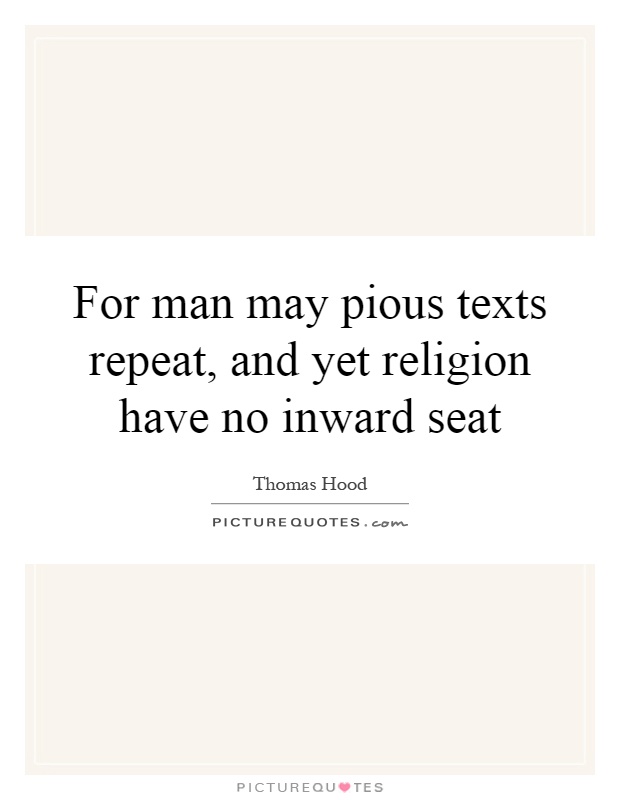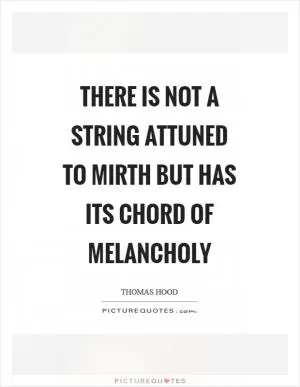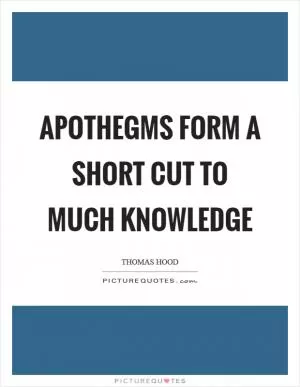For man may pious texts repeat, and yet religion have no inward seat

For man may pious texts repeat, and yet religion have no inward seat
Thomas Hood was a British poet and humorist known for his witty and satirical works. In his poem "The Song of the Shirt," Hood sheds light on the harsh realities of poverty and exploitation in the 19th century. However, Hood's exploration of religion and spirituality in his works also reveals a deeper understanding of human nature and the complexities of faith.The line "For man may pious texts repeat, and yet religion have no inward seat" from Hood's poem "The Lady's Dream" speaks to the idea that outward displays of religious devotion do not necessarily reflect a true connection to one's faith. In other words, reciting prayers or attending religious services does not guarantee a genuine belief or understanding of the principles of one's religion.
Hood's own experiences with religion may have influenced his perspective on this topic. Born into a devoutly religious family, Hood was exposed to the teachings of Christianity from a young age. However, as he grew older and began to question the dogma and hypocrisy he saw within the church, Hood's faith wavered. This internal struggle is reflected in his poetry, where he often explores themes of doubt, skepticism, and disillusionment with organized religion.












 Friendship Quotes
Friendship Quotes Love Quotes
Love Quotes Life Quotes
Life Quotes Funny Quotes
Funny Quotes Motivational Quotes
Motivational Quotes Inspirational Quotes
Inspirational Quotes